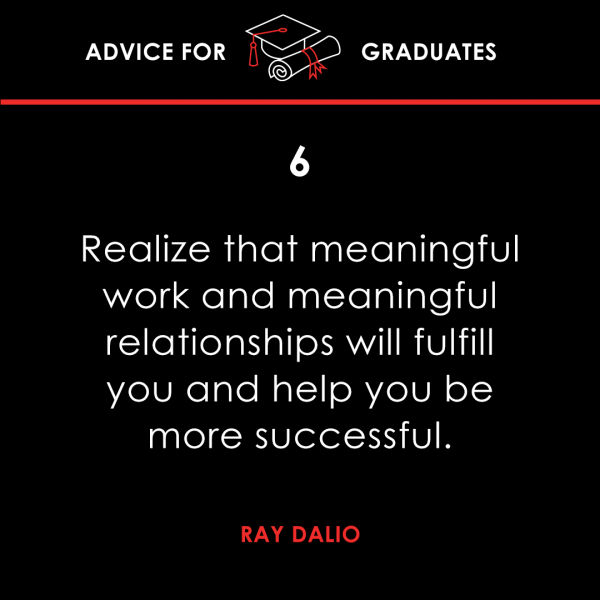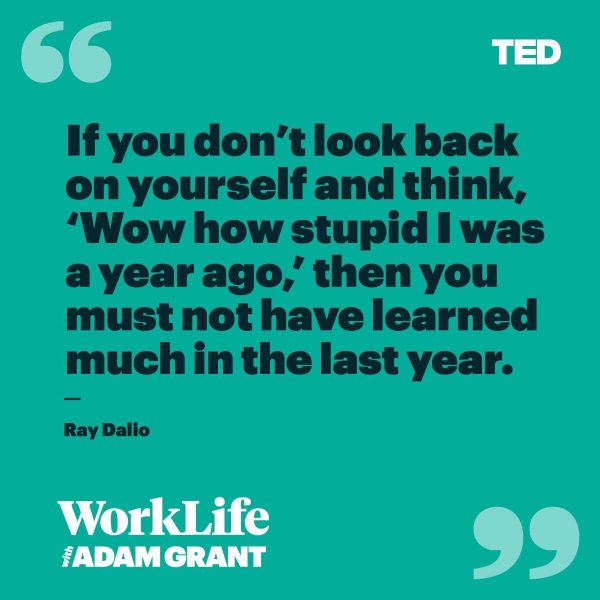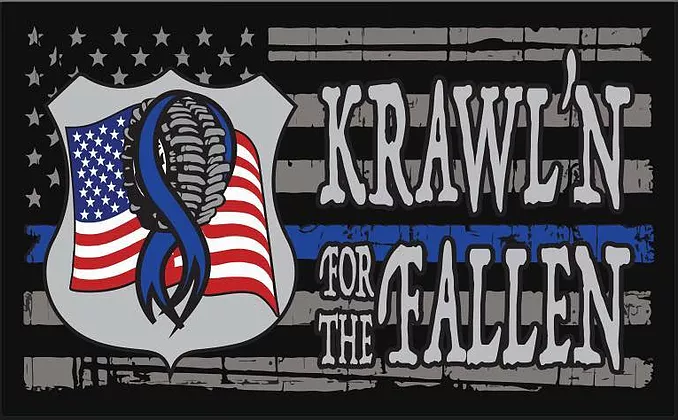The FIRM service rating is almost always 100%! We have great people that help make this possible. However, it takes three key ingredients to deliver great service. Great teams. Great product offering. Great systems. Like the three-legged stool, if a key ingredient is missing, service ratings will be affected.
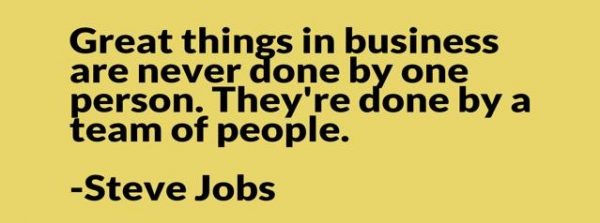
This is a three-part series on how to develop great teams. Part I – How to Develop Great Teams; the Foundation. Part II – How to Develop Great Teams; Implement the tools. Part III – How to Develop Great Teams; Feedback is key.
Tools to Develop Great Teams
Let’s assume you already have a great product offering. However, in order to deliver consistent service, you have to develop great teams from the range of “ok” to “great” people. So how do you take all the individual people in your company to blend them into great teams? This starts with great systems. At The FIRM we use a combination of The 7 Habits by Stephen Covey as the foundation of how we communicate. We also use Principles by Ray Dalio to develop systems. We are using the Dalio DOT Collector, which enables teams to give real-time feedback in an app. Let’s face it, we all want to hear how great we are, but we improve most when people feel safe to give transparent and open feedback on how we show up, and how we can improve!
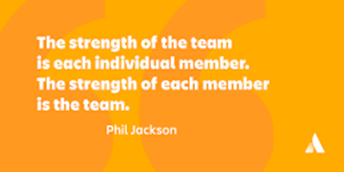
Before we move forward we’d like to recap how much support we’ve received throughout the process to totally reorganize The FIRM over the past three years!
- Professional 7H Facilitator – every person in our organization goes through this training from the board down to the groundskeeper. This investment in our team demonstrates how committed our company is to our culture.
- Our 7H facilitator, also works directly with Bridgewater to develop a training course we’ve all taken (or will be required to complete) called Principles by Ray Dalio.
- Since our company is so culturally committed, Bridgewater has developed a DOT Collector app specifically for us to use. This app gives us the ability to create meetings and DOT Team Members (TM’s). A one through six (1-6 needs improvement and seven through ten (7-10) for a job well done. This feedback is so important to organizational health it’s the final part of this three part series.
- We have a reading initiative and below are a list of the books (Who moved my cheese, 7H and Principles are all Required Readings).
-
- Nudge by Richard H. Thaler & Cass R. Sunstein
- Freakonomics by Steven Levitt & Stephen J. Dubner
- Superfreakonomics by Steven Levitt & Stephen J. Dubner
- Think Fast and Slow by Daniel Kahneman
- Measure What Matters by John Doerr & Larry Page
- The Power of Habit by Charles Duhigg
- The Richest Man in Babylon by George S. Clason
- Talent is Overrated by Geoff Colvin
- Never Split the Difference by Charles Voss & Tahl Raz
- How Not to Die by Dr. Michael Greger
- The Tipping Point by Malcolm Gladwell
- Skin in the Game by Nicholas Taleb
- Primed to Perform by Neel Doshi & Lindsay McGregor
- Why We Sleep by Matthew Walker, PhD
- Tools of Titans by Tim Ferris
- With this solid cultural foundation, we were able to revamp our “know your why”, Mission, Vision, and Values.
- Then we could develop our overall team personality.
- Finally, we were able to create clear and measurable OKR/KPI
Use Feedback to Develop Great Teams
“Everyone has at least one big thing that stands in the way of their success; find yours and deal with it.” Dalio
First, let’s deep dive into why feedback is critical to build great teams. Let’s say you are in a meeting, and Karla is going off-script. Maybe several in the room love Karla and have just accepted this is her style. However, maybe some in the room are irritated. What if you could “real-time” have people DOT Karla they would like her to be more concise. Feedback might look like “Karla you are always well prepared, however, during meetings it would be great if you could be more concise and focus on just the high-level key points.”.
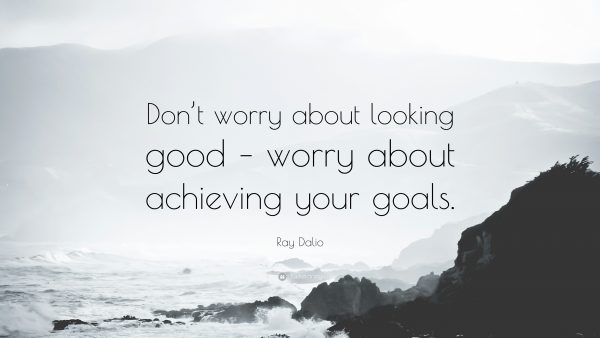
The Power of Feedback to Develop Great Teams
The power of this feedback is that maybe Karla is unaware her teammates would appreciate her being more to the point. Now, it may sting a bit to hear this, but Dalio encourages individuals to lean into discomfort. To take feedback inward. To reflect upon feedback. To look for where others may be on point. To see it as a gift for personal growth! Lofty ideals, but at The FIRM we have put them into practice. The end results is the team is the best it’s ever been, each individual has stated they have grown professionally, and we are able to deliver consistent service across all departments.
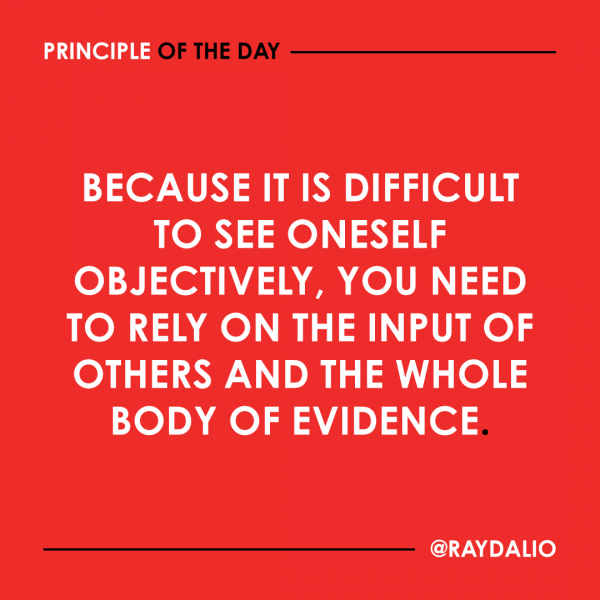
So how do you put all this into practice and what are the benefits?
Let’s take one idea to demonstrate how valuable this process can be. First, do you know who you are, who are your people, what makes you tick, what makes them tick, and even if you know all this do you know how to leverage it?
If yes, you’ll love this section. If no, great news there may already be someone in your org who is eager to help you once you create a framework for them to thrive in! You might be asking at this point why a driving school is putting so much energy into writing blogs about team building! Well it’s because that what drives our service experience out to our customers (pun intended). The question is are you interested in the discovery process of what drives you, your org and the people in it? Here is what drives me!
“I also feared boredom and mediocrity much more than I feared failure.” – Dalio
Bingo! For me, the epitome of mediocrity is a failure to strive for personal development. I simply do not understand how someone can be content riding the status quo; being just good enough; hanging on the mean. If I encounter a problem, I just have to dig into why it’s that way. If I see inefficiencies, I want to understand how to improve them. I love to learn and am curious about many things. I ask a lot of questions, Google or call a summit!
It blows my mind when I hear “this is not working but we don’t know why. Like what? You mean you don’t have a list of things you’ve tried, or plan to try, and a strategy on how you plan to troubleshoot this?” Gasp. Horror.
Perhaps my reaction is so strong because I’m what Dalio would refer to as a “Shaper”1. We shapers Google, lean on friends, search out experts and dig down while also looking at the 360 view to figure it out! Sometimes things are a mystery, but the other x% is where the excitement of discovery lives!
Shapers are people who can go from visualization to actualization.
I wrote a lot about the people I call “shapers” in the first part of this book. I used the word to mean someone who comes up with unique and valuable visions and builds them out beautifully, typically over the doubts of others. Shapers get both the big picture and the details right. To me, it seems that Shaper = Visionary + Practical Thinker + Determined.
I’ve found that shapers tend to share attributes such as intense curiosity and a compulsive need to make sense of things, independent thinking that verges on rebelliousness, a need to dream big and unconventionally, practicality and determination to push through all obstacles to achieve their goals, and a knowledge of their own and others’ weaknesses and strengths so they can orchestrate teams to achieve them. Perhaps even more importantly, they can hold conflicting thoughts simultaneously and look at them from different angles. They typically love to knock things around with other really smart people and can easily navigate back and forth between the big picture and the granular details, counting both as equally important.
People wired with enough of these ways of thinking that they can operate in the world of shapers are very rare.
What Do Great Leaders Have in Common? Go ahead and edit it to more accurately reflect who you are. If this is not you, consider who in your org this does reflect as they may currently be a key TM or someone you should consider making a key TM.
Dalio did a study of great leaders (and many of us are great leaders even if we are not billionaires which he used in his study) that gave us a road map of how others struggle well. For authenticity, I changed the wording in a few places to reflect my views. I agree with this assessment of our personality as both a striver for personal growth and as an independent thinker.
“They are all independent thinkers who do not let anything or anyone stand in the way of achieving their audacious goals. They have a very strong mental map of how things should could be done, and at the same time a willingness to test those mental maps in the world of reality and change the way they do things to make them work better.
They are extremely resilient because their need desire to achieve what they envision is stronger than the pain they experience as they struggle to achieve it. Perhaps most interesting, they have an wider expanded view because of their natural curiosity and desire to learn range of vision than most people, either because they have that vision themselves or because they know how to get it from honor the vision of others who can see what they can’t.
All are able to see both big pictures and granular details (and levels in between) and synthesize the perspectives they gain at those different levels, whereas most people see just one or the other. They are simultaneously creative, systematic, and practical. They are assertive and open-minded at the same time. Above all, they are passionate about what they are doing, intolerant of people who work for them who aren’t excellent (who lack a desire to grow or block the growth of others) at what they do, and want to have a big beneficial impact on the world.
At times, their extreme determination to achieve their goals can make them appear abrasive or inconsiderate aggressive or confrontational, which was reflected in their test results. Nothing is ever good enough, While they can celebrate and enjoy progress they experience the gap between what is and what could be both a tragedy and a source of unending motivation.
When faced with a choice between achieving their goal or pleasing (or not disappointing) others, they would choose to achieve their goal every time. most often.” – Dalio
FIRM Activities Build Great Teams
If you are interested in learning more about how to develop teams then we’ve got a lot more coming just for you. We have a lot of content on how to build great teams. Resources to great personality profiles, so that each team member’s area of weakness can be supported by the other team members’ strengths. Strengths can be leveraged by delegating project managers. Project managers are accountable to outcomes vs committees where no one person is accountable leading to group sink. Group sink occurs when everyone assumes someone else has it nailed down!
How to Build A Great Team At The FIRM
If you want to build great teams, then start with the below Harvard article which outlines why feedback is so important to the process. Next blog we will focus more on how to understand personality types and provide links and resources to help you get started! The FIRM is a great venue for team building because we understand the principles behind how to get everyone to work together. At The FIRM we get teams out of the office and into the field which disrupts their patterns. This disruption puts everyone on a level playing field to work toward a common goal in the car to achieve their driving mission. We can help your company build great teams while enjoying an exhilarating and memorable experience.
